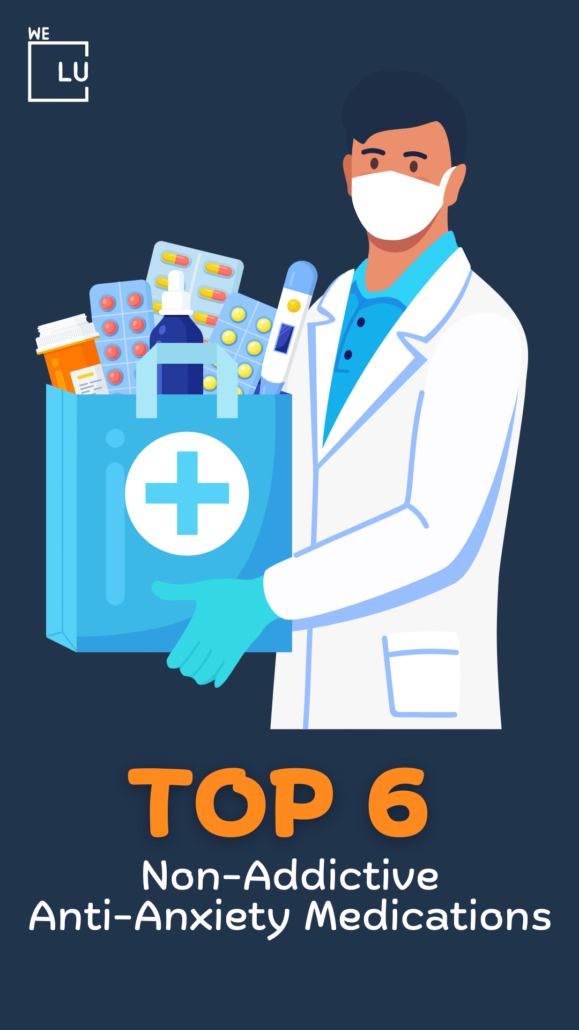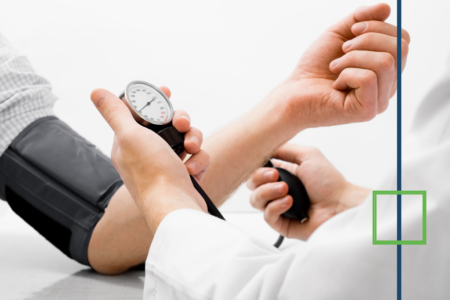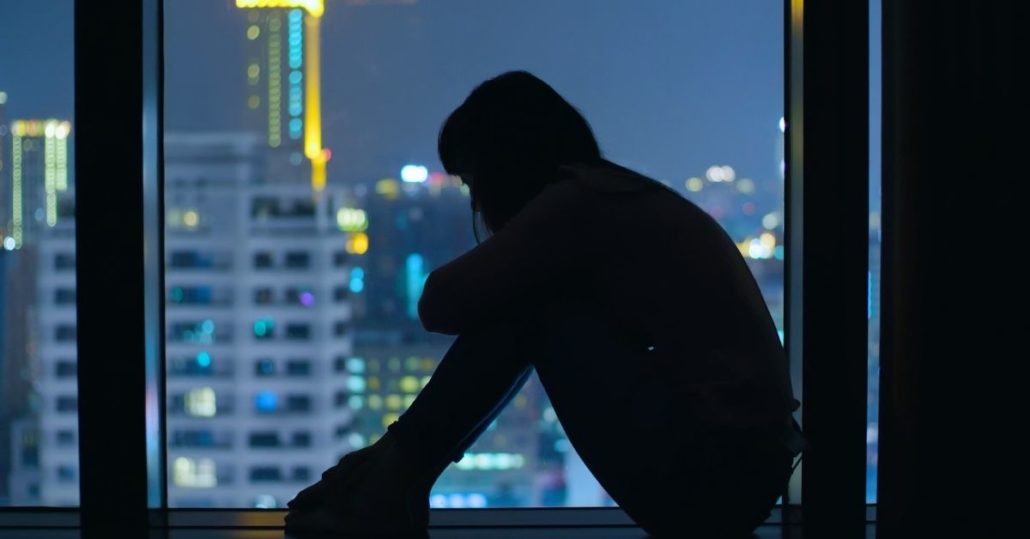By We Level Up FL Treatment Center | Editor Yamilla Francese | Clinically Reviewed By Lauren Barry, LMFT, MCAP, QS, Director of Quality Assurance | Editorial Policy | Research Policy | Last Updated: April 13, 2023
What Are Non Addictive Anti Anxiety Medications?
Alcohol and drug abuse is common among those with an anxiety disorder because individuals often use alcohol or drugs to cope with anxiety symptoms. In this situation, addiction and anxiety would be classified as co-occurring disorders, wherein both issues develop together and worsen each other. This article lists non-addictive anti-anxiety medications and treatments in non-habit-forming anxiety medication plus non-medication alternatives.
Without proper treatment, prescribing addictive benzodiazepines for anxiety could worsen addiction issues. That’s why our dual diagnosis program works with each individual to find the right prescription for them, even if that’s a benzo alternative. Medication management is an essential part of treatment for many people. If you have anxiety and a history of addiction, we’ll work with you to find the right option for benzodiazepines for anxiety.
Common Anxiety Signs And Symptoms
- Feeling tense, restless, or nervous.
- Having a sense of impending doom, danger, or panic.
- Having an increased heart rate.
- Breathing rapidly or hyperventilation.
- Trembling.
- Sweating.
- Feeling tired or weak.
- Trouble concentrating or thinking about anything other than the present worry.
- Having difficulty sleeping.
- Experiencing gastrointestinal (GI) problems.
- Having trouble controlling worry.
- Having the urge to avoid things that trigger anxiety.
Symptoms Of Substance Dependence Syndrome
- The increased dosage needed over time to achieve the desired outcome.
- Diminishing effect over time despite unchanged dosage.
- Withdrawal syndrome on discontinuation.
- Continued drug use to prevent or avoid withdrawal.
- Dosage larger or duration of use longer than intended.
- Inability to reduce or control drug use.
- Excessive drug-seeking behavior.
- Social, recreational, or occupational activities given up or destroyed due to drug use.
- Continued drug use despite knowledge of damaging physical or psychological consequences.


Skip to:
- What Are Non Addictive Anti Anxiety Medications?
- Common Anxiety Signs And Symptoms
- Symptoms Of Substance Dependence Syndrome
- Non Addictive Anti Anxiety Medications Statistics
- Top 6 Non Addictive Anti Anxiety Medications
- Non Addictive Anxiety Holistic Treatment Options
- Treatment Of Comorbid Alcohol Abuse And Anxiety Disorder Using Non Addictive Anti Anxiety Medications
- Find The Right Non Addictive Anti Anxiety Medications Treatment At We Level Up Florida
Learn More:
- 10 Benefits Of Addiction Treatment Massage
- Medication for Insomnia and Anxiety: Effective Treatments
- Social Anxiety and Depression, Link, Triggers, Treatments
- CBT For Anxiety, How It Works, Examples, & Effective Options
- Outpatient Anxiety Treatment
- What is the Best SSRI for Anxiety, Types, Side Effects & Anxiety Treatment
- Top Coping & Grounding Techniques for Anxiety Attacks & Trauma
- Common Anxiety Medications, Types of Medication for Anxiety & Side Effects
- Sugar and Depression: What’s The Link?
Anxiety Fact Sheet
Anxiety Overview
Your brain and behavior are both impacted by the condition of addiction. Substance addiction makes it unable to resist the impulse to use the drug, regardless of how harmful it may be. The sooner you receive treatment for drug addiction, the better your chances are of avoiding some of the disease’s more serious side effects.
Anxiety Symptoms
Behavioral: hypervigilance, irritability, or restlessness.
Cognitive: lack of concentration, racing thoughts, or unwanted thoughts.
Whole body: fatigue or sweating
Also common: anxiety, excessive worry, angor animi, fear, insomnia, nausea, palpitations, or trembling
Anxiety Treatment
- Support group: A place where those pursuing the same disease or objective, such as weight loss or depression, can receive counseling and exchange experiences.
- Cognitive behavioral therapy: A conversation treatment that aimed to change the negative attitudes, actions, and feelings connected to psychiatric discomfort.
- Counseling psychology: A subfield of psychology that handles issues with the self that are connected to work, school, family, and social life.
- Anger management: To reduce destructive emotional outbursts, practice mindfulness, coping skills, and trigger avoidance.
- Psychoeducation: Mental health education that also helps individuals feel supported, validated, and empowered
- Family therapy: psychological counseling that improves family communication and conflict resolution.
Non Addictive Anti Anxiety Medications Statistics
Experiencing fear or trepidation is a normal part of life for many people. However, anxiety may need to be treated if it becomes ingrained, upsetting, and interferes with daily life.
This is not unusual because anxiety disorders, which affect over 40 million Americans, are the most prevalent category of mental health illnesses.
6.8 million
6.8 million people in the US suffer from GAD or 3.1% of the population.
Source: NIMH
43.2%
Those who struggle with generalized anxiety disorder only obtain therapy in 43.2% of cases.
Source: NIMH
15 million
Fifteen million adults in the U.S., or 7.1% of the population, suffer from SAD.
Source: NIMH
Top 6 Non Addictive Anti Anxiety Medications
1. SSRI Drugs (or Selective Serotonin Reuptake Inhibitors drugs) for anxiety
What are SSRI drugs? What are SSRI side effects? SSRI vs SNRI comparison.
This class of medication is one of the most commonly prescribed in anxiety disorder treatment. This medication increases the amount of serotonin in the brain. It aims to improve mental health by binding to neurotransmitter receptors in the brain, ultimately reducing stress and improving mood.
2. SNRI Drugs (or Serotonin and Norepinephrine Reuptake drugs) for anxiety
What are SNRI drugs? What are SNRI side effects?
This class of medication has been proven effective in treating the symptoms of panic disorders and Generalized Anxiety Disorder (GAD). Not only does this type of medication helps regulate serotonin release, but it also helps release norepinephrine. Norepinephrine is a brain chemical that affects concentration.
3. Buspirone for anxiety
What is Buspirone? Is Buspirone addictive? What are Buspirone side effects? What is a typical Buspirone dosage?
Buspirone is a non-addictive and non-narcotic medication that works similarly to an SSRI. Buspirone only affects one serotonin receptor subtype within the brain, leading to fewer side effects. Buspirone is an ideal medication for those struggling with mild to moderate anxiety.
Buspirone medication is available under the brand name BuSpar. Buspirone is a slow-acting substance. Buspirone acclamation can take up to 6 weeks to feel its effects but has a lower risk for dependence.
4. Hydroxyzine for anxiety
What is Hydroxyzine? What are Hydroxyzine side effects? What is a typical Hydroxyzine dosage? What is Hydroxyzine used for?
This non-narcotic prescription blocks histamine receptors within the brain, ultimately elevating mood and acting as a low-grade sedative.
Hydroxyzine is an antihistamine that helps fight allergies. However, it can also be legally prescribed to treat symptoms of anxiety. It is a fast-acting medicine, making it more effective in the short term than buspirone.
5. Beta-Blockers for anxiety
What do Beta-Blockers do? What are Beta-Blockers side effects? How do Beta-Blockers work? Are Beta-Blockers safe?
Beta-Blockers medications work to give temporary relief in the case of anxiety-related episodes, such as panic attacks. Beta-Blockers do not change brain chemistry. Therefore they are not prescribed long-term. Beta-blockers are non-addictive and a typical choice for those who need instant relief from intense symptoms.

6. Gabapentin for anxiety (Neurontin)
What is Gabapentin? What are Gabapentin side effects? What is a typical Gabapentin dosage? What is Gabapentin used for?
Gabapentin is commonly prescribed for seizures and nerve pain. While Gabapentin is considered an “off-label” use, treatment of anxiety conditions with gabapentin has seen promising results from initial studies and case reports. Gabapentin’s FDA label does not list anxiety as a medical condition it treats. However, gabapentin may still be prescribed for anxiety by a psychiatrist. It is available as the prescription Neurontin.
Non Addictive Anxiety Holistic Treatment Options
Cognitive Behavioral Therapy for anxiety (CBT for anxiety)
CBT helps people to rewrite the stories they tell themselves about their lives. The mind is a great tool; thoughts can spiral us into worse fear, anxiety, and anger. Or, in reverse, it helps raises us to a more calm state. Controlling the perspectives and stories we repeat can significantly help relieve our anxiety. CBT enables clients and therapists to work together in a therapeutic relationship to identify destructive and unhealthy thought patterns and actively explore alternate thinking. The skills individuals learn through cognitive-behavioral approaches continue after the completion of treatment.
Dialectical Behavioral Therapy for anxiety (DBT for anxiety)
DBT is a form of CBT that centers on four key tools:
- Mindfulness focuses on improving an individual’s ability to accept and be present in the current moment.
- Distress tolerance is geared toward increasing a person’s tolerance of negative emotion rather than trying to escape it.
- Emotion regulation is strategies to manage and change intense emotions causing problems in a person’s life.
- Interpersonal effectiveness involves learning techniques to communicate with others assertively, maintain self-respect, and strengthens relationships.
Talk Therapy for Anxiety Treatment
Anxiety can sometimes build because we are shoving our feelings about things happening in our lives. These collected emotions build up in the mind and body, producing an increasing sense of anxiety. By visiting regular sessions with a therapist, we can unload some of our emotions so they don’t build up and become overwhelming.
At-Home Options for Anxiety without Non Addictive Anti Anxiety Medications
Non addictive anti anxiety medication isn’t the sole option for treating anxiety. These methods have been demonstrated to work equally, if not better, for some people than non addictive anti anxiety medication. You can either learn them on your own or receive instruction in treatment. If you understand how to use them, you can lessen worry if you ever need to stop taking your prescriptions or switch them. When you’re feeling worried, try some of the following to relax:
- Follow a guided meditation routine.
- Write in a journal about your anxiety, doing your best to describe it. Do this each time you confront a fear, and note any changes over time.
- Stream your favorite movies and/or tv shows.
- Make a mental note of something you can see, hear, smell, taste, and touch. This grounding approach can help you connect with your environment and divert your attention from your worry.
- Try breathing in squares. Take a five-second breath in, followed by a five-second hold. Take a five-second to exhale, followed by a five-second pause. Repeat until you notice a slowing in your pulse rate and an end to your shaking.
Treatment Of Comorbid Alcohol Abuse And Anxiety Disorder Using Non Addictive Anti Anxiety Medications
It is estimated that more than 51% of people with mental disorders abuse or depend on psychoactive substances, especially alcohol. The presence of a mental disorder raises the risk of advancing from mere consumption to alcohol dependency and addiction. Women suffer from greater stress and anxiety disorders than men, and they are also more vulnerable to maintaining alcohol consumption levels. This is according to the National Center for Biotechnology Information (NCBI) [1]
37% of alcohol use disorder patients suffer from other psychiatric disorders [2]. Alcohol dependence is associated with an increased risk of mood disorders (three times higher), anxiety disorders in general (twice as high), generalized anxiety disorders (four times higher), panic disorders (almost double), and post-traumatic stress disorder PTSD (twice as high). This is according to the study from NCBI [3].
Individuals with alcohol-use disorders (AUDs) have a high occurrence of anxiety disorders. “Co-occurring disorders” refers to the coexistence of an alcohol use disorder (AUD) and/or drug-related disorders with another non-addictive psychiatric disorder, such as anxiety.

The comorbidity of alcohol dependence with another psychiatric disorder is widespread. The diagnosis is challenging due to the possibility of multiple causes. For example, anxiety symptoms may be caused by abstinence or intoxication effects (induced anxiety disorder).
It is also possible that one disorder may be, indirectly or directly, caused by the other. For example, a person may turn to substance consumption to cope with anxiety; anxiety disorder may be triggered by the stress associated with substance abuse.
Observing anxiety symptoms in a person who has been abstinent for several weeks allows us to determine whether the person presents with abstinence- or intoxication-induced anxiety or whether they should be diagnosed with primary anxiety disorder.
Selective serotonin reuptake inhibitors (SSRIs), especially sertraline, showed effective results in post-traumatic stress disorder and comorbid anxiety disorders. Nevertheless, SSRIs should be used cautiously when individuals are actively drinking because they may increase alcohol consumption.
Gabapentin, buspirone, and pregabalin were effective in comorbid alcohol-use disorders and anxiety disorders. The treatment of such dual disorders should start as early as possible. Since alcohol use disorder and anxiety can reinforce each other, treatments targeting both can be effective.
What Are Non Addictive Anti Anxiety Medications? Video
We’ll explore the top non-addictive anti-anxiety medications and holistic treatment options to help you or your loved ones manage anxiety effectively.
Find The Right Non Addictive Anti Anxiety Medications Treatment At We Level Up Florida
If you or someone you love is struggling with an anxiety disorder or other mental health issues, get them the help they deserve. We Level Up Florida provides options for non-addictive anxiety medications as part of our Holistic Treatment Program. Contact our team today!
Powerful Coping Skills for Anxiety. Top Mental Health Tips & Anxiety Tips Advice from a Therapist Video
4 Mental Health Tips & Advice From A Therapist To Remove Your Everyday Anxiety
“Anxiety, when gone untreated, can increase over time.
So here are four tips to calm your everyday anxiety.
Take a breath.
Do something that you enjoy.
Remove yourself from the situation and go for a walk.
Doing these four things gives you a better chance of calming your everyday anxiety.”
Search We Level Up FL Non Addictive Anti Anxiety Medications Topics & Resources
Sources:
[1][2]3] NCBI – https://www.ncbi.nlm.nih.gov/pmc/articles/PMC5614930/
[4] Non Addictive Anti Anxiety Medications – We Level Up
Anderson, E., Shivakumar, G. “Effects of exercise and physical activity on anxiety.” Frontiers in Psychiatry, April 23, 2013.
Baldwin, D., Ajel, K., Masdrakis, V., Nowak, M., Rafiq, R. “Pregabalin for the treatment of generali[…]disorder: An update.” Neuropsychiatric Disease and Treatment, June 24, 2013.
Crosta, P. “What you need to know about Lyrica (pregabalin).” Medical News Today, January 5, 2018.
Dooley, T. “Treating anxiety with either beta blocke[…]nic drugs: A review.” Mental Health in Family Medicine, 2015.
Erhardt, J. “Birmingham researcher releases as-needed drug for anxiety.” Birmingham Medical News, January 13, 2017.
Farach, F., Pruitt, L., Jun, J., Jerud, A., Zoellner, L., Roy-Byrne, P. “Pharmacological treatment of anxiety dis[…]d future directions.” Journal of Anxiety Disorders, December 2012.
Food and Drug Administration (FDA). “BuSpar.” November 2010.
Fudin, J. “How gabapentin differs from pregabalin.” Pharmacy Times, September 21, 2015.